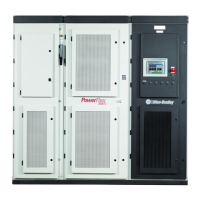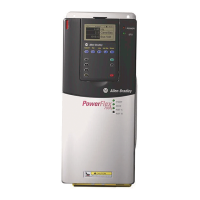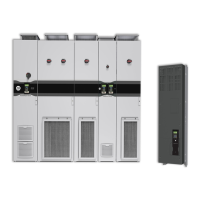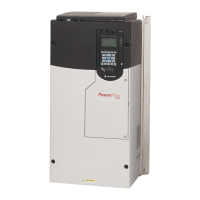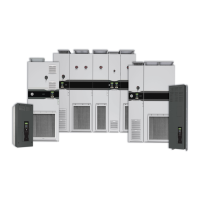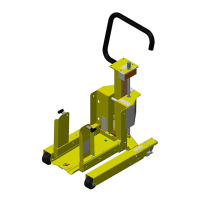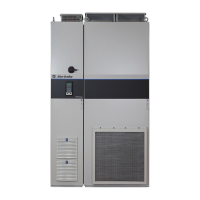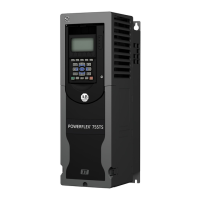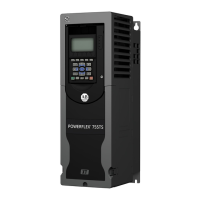Parameter Descriptions 2-117
7000-TD002A-EN-P – September 2007
Line Loss Trip [Line Loss Trip]
Linear Number: 698
Default Value: 8.0 Hz
Minimum Value: 0.0 Hz
Maximum Value: 40.0 Hz
Access Level: Service
Read/Write: Read/Write
This parameter specifies the maximum deviation in the instantaneous input frequency from the average
frequency, which can be considered as a line loss condition. For determining a line loss condition, the
drive looks for a sudden change in the measured line frequency in conjunction with loss of voltage
magnitude. When the difference between the Line Frequency (657) and the Master Line Freq (334) is
greater than this parameter, the drive detects a Line Loss and shuts down.
Rectifier Device Diagnostic Delay [Rec Dvc Diag Dly]
Linear Number: 266
Default Value: 2
Minimum Value: 0
Maximum Value: 6
Access Level: Service
Read/Write: Read/Write
This parameter is added to help avoid nuisance tripping on Rectifier Device diagnostic faults. The delay
allows the drive to ignore a detected fault for the number of line cycles (SCR rectifiers) or the number of
consecutive bridge firings (PWM rectifiers) set by this parameter. The default setting for this parameter is
2, and should not be changed unless directed to increase it by the factory.
Inverter Device Diagnostic Delay [Inv Dvc Diag Dly]
Linear Number: 268
Default Value: 2
Minimum Value: 0
Maximum Value: 6
Access Level: Service
Read/Write: Read/Write
This parameter is a feature added to help avoid nuisance tripping on Inverter Device diagnostic faults.
The delay allows the drive to ignore a detected fault for the number of consecutive bridge firings set by
this parameter. The default setting for this parameter is 2, and should not be changed unless directed to
increase it by the factory.
Rectifier Heatsink Temperature Warning [RecHSink TempWrn]
Linear Number: 112
Default Value: 53 C
Minimum Value: 0 C
Maximum Value: 100 C
Access Level: Service
Read/Write: Read/Write
This parameter specifies the level at which the drive will issue a rectifier heat sink over temperature
warning.
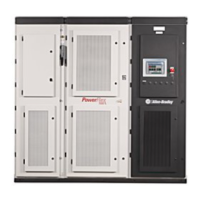
